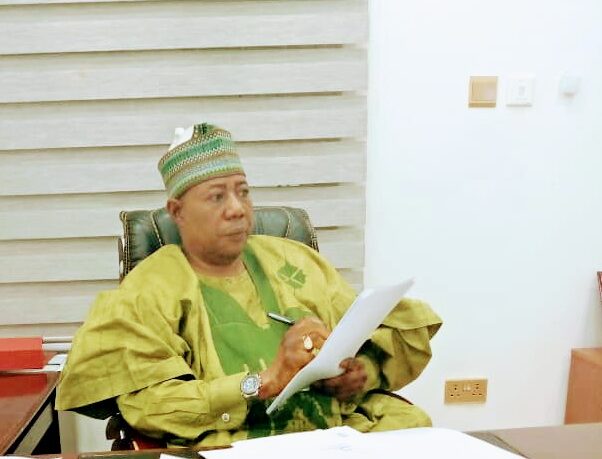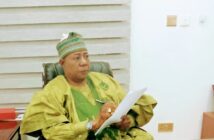There is never a dull moment with President Bola Ahmed Tinubu. He is full of wise cracks right from when he was Lagos State governor. From his presidential campaign to now that he has become the commander-and-chief of our great country I have followed his preaching and dancing abilities in the last few years approach to pass on his messages to the people. He has deployed the showbiz style of speaking to draw national and international attention to the need for equity, fairness and justice in democracy to ensure the unity of Nigeria.
So, when he voiced his position fearlessly to his ministers at the maiden Federal Executive Council (FEC) on Monday, it was very to everyone that he was more concerned about the collective sacrifices for Nigerians interest.
Permit me to remind us of what the president told his ministers, while addressing the newly sworn in ministers at the inaugural Federal Executive Council (FEC) meeting at the State House in Abuja, on Monday. Tinubu did not minced words on what the “Renewed Hope Agenda” stands for and targets to achieve.
Like he has often reminded Nigerians, he knows the hopes and aspirations of over 200 million fellow Nigerians rested on what himself and his ministers do daily. What’s more? He has promised to work relentlessly to provide the focused leadership required to stop failure in its tracks so that sustainable progress can be achieved.
Governance is about looking inwards, putting on the thinking cap and evolving unique approaches to solving problems. It is a soothing relief for Nigerians and ministers, who are the executioners of government policies and programmes, that President Tinubu has promised a homegrown re-engineering of Nigeria’s finances, a reimagined stewardship of our resources. The chief of them all is to let the economy work for the people of this country.
President Tinubu has bluntly told his ministers to hate excuses and be courageous in taking decisions like Napoleon Bonarpate. Boldly, he has told his ministers to disregard cynics and embrace possibility thinking.
Though he has full confidence in the ability of his carefully selected team to deliver, Tinubu said, “Anyone thinking that the appointment is a fixed term is mistaken.” There are two supreme masters in Asiwaju’s service dictionary: reward and punishment. Perform well and be rewarded but fail and be fired. The president’s riot act is very clear: “This government is a new one with a new approach and a new mandate to deliver for Nigeria without any lamentation or excuses.”
Tinubu told the ministers that expectations are high and underperformance won’t be tolerated from any of his cabinet members.
To reemphasise his roadmap Tinubu said, “You and I know that expectations are high, and these are tough times. We must work hard and move ourselves to create a buoyant economy that will serve Nigeria. We have an employment rate that is unacceptable, and we are facing threats from climate change.
“In order to turn things around, you have been selected to perform your utmost best. Our policy implementation will reform the economy, ensure inclusive growth, and strengthen security for peace and prosperity. Without security, there can be no investment.”
It was the late sage, Chief Obafemi Awolowo, who famously said in 1983 that “the worst civilian rule is better than the best military dictatorship.” The reason for his assertion is not far-fetched. It has been accepted globally that the citizens should have a say in how they are governed. In other words, the constitution, the grand norm, is the anchor that sustains every democratic system, while military rule is dictated by whims and caprices, draconian and iron-fisted
Since 1999, despite the push and pull, Nigerians have demonstrated that Chief Awolowo was right in the above cited statement. Hence, the 1999 constitution of the federal republic of Nigeria, as amended, stated very explicitly, especially in Section 14 that: (1) The Federal Republic of Nigeria shall be a State based on the principles of democracy and social justice; (a) sovereignty belongs to the people of Nigeria from whom government through this Constitution derives all its powers and authority; (b) the security and welfare of the people shall be the primary purpose of government: and (c) the participation by the people in their government shall be ensured in accordance with the provisions of this Constitution.
Needless to restate President Bola Ahmed Tinubu’s avowed commitment to anchor the policies and programmes of his government on the will of the people as stipulated by the guiding constitution. He demonstrated this at the opening ceremony of the 2023 Nigerian Bar Association (NBA) conference.
President Tinubu used the opportunity to restate the agenda of his government. “To build a great nation, we must make bold decisions; even though it may be painful at the moment, it is not about you and me. It is about our generation yet unborn,” he stated.
He is intentionally but gradually setting templates of governance standard obtainable in the developed world. Famous quote from a celebrated author, John C. Maxwell says, “A leader is one who knows the way, goes the way and shows the way.” In order words, a leader is not omnipotent. He can’t be everywhere and do everything.
As a core democrat that he is, Tinubu has already challenged men of the bench “You are learned, and I want to learn. What is it that I am doing right, let me know so that I do better, and whatever I am doing wrong, tell me, and I will change.”
Like late Anti-apartheid icon, Nelson Mandela compared leadership to shepherding. Great leaders “stay behind the flock, letting the most nimble go ahead & the others follow, not realizing all along they are being directed from behind.” This is the sum total of the leadership model Tinubu has unleashed on our governance space.
As I conclude, let me remind Nigerians that a good leader is that person who knows the price of building a great nation. He is one who is bold to make hard decisions; even if it hurts at the moment. In taking decisions, good leaders factor in transgenerstional interest and not cosmetic or momentary gains, which oftentimes mortgages the destinies of unborn generations.
All eyes are now on the ministers. Nigerians are not expecting flaws in governance or lame excuses; certainly not when President Tinubu has declared an open-door policy for his cabinet. On the other hand, we expect the law enforcement agencies, especially the anti-graft agencies, to get to work by beaming their searchlights with a view to monitoring effective governance delivery and checking against any form of maladministration.
Some cynics may villify President Tinubu today for taking transgenerational and hard decisions. Nevertheless, I am confident that few years from here, when the benefits of these landmark reforms start rolling in, these cynics will vindicate and judge him faithful.
– Ibrahim is director, Communication and Strategic Planning, of the Presidential Support Committee (PSC).



